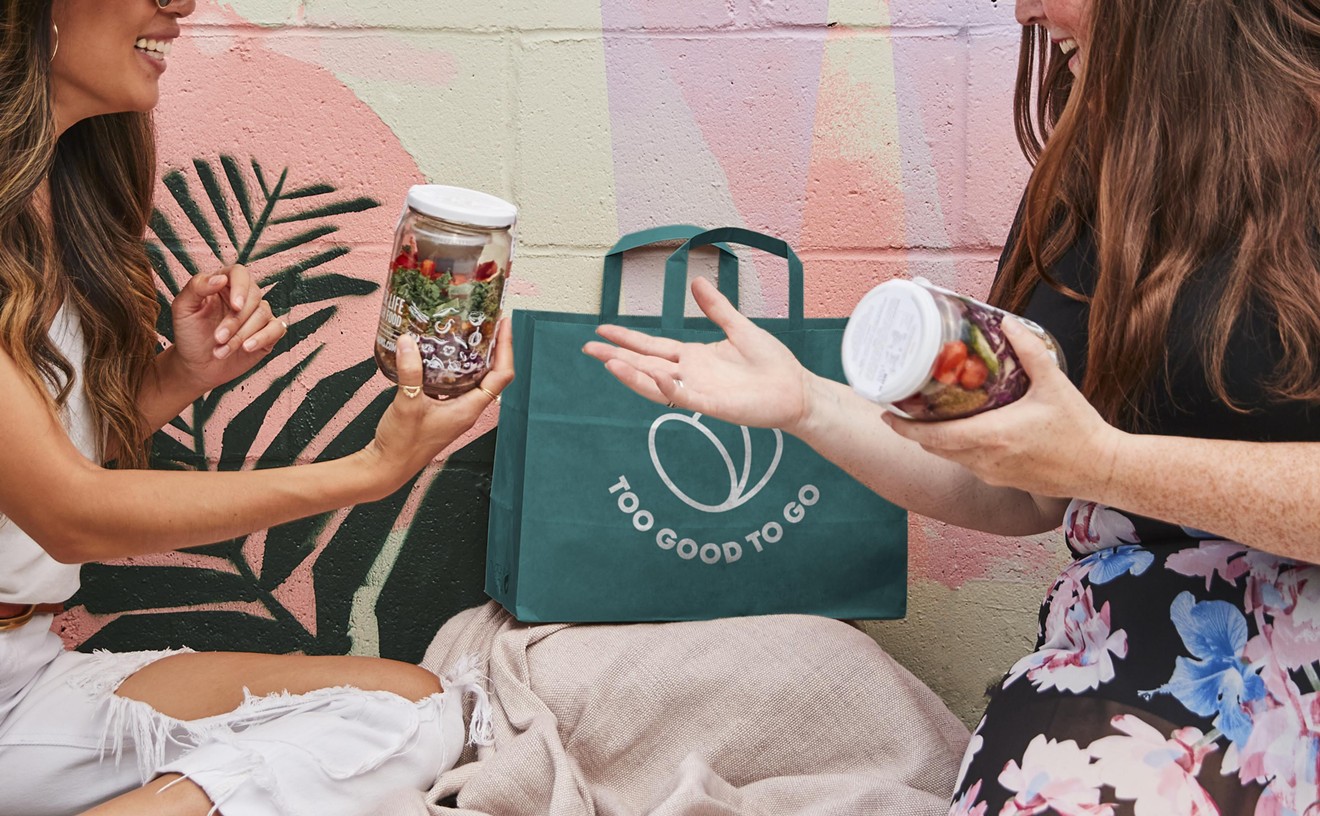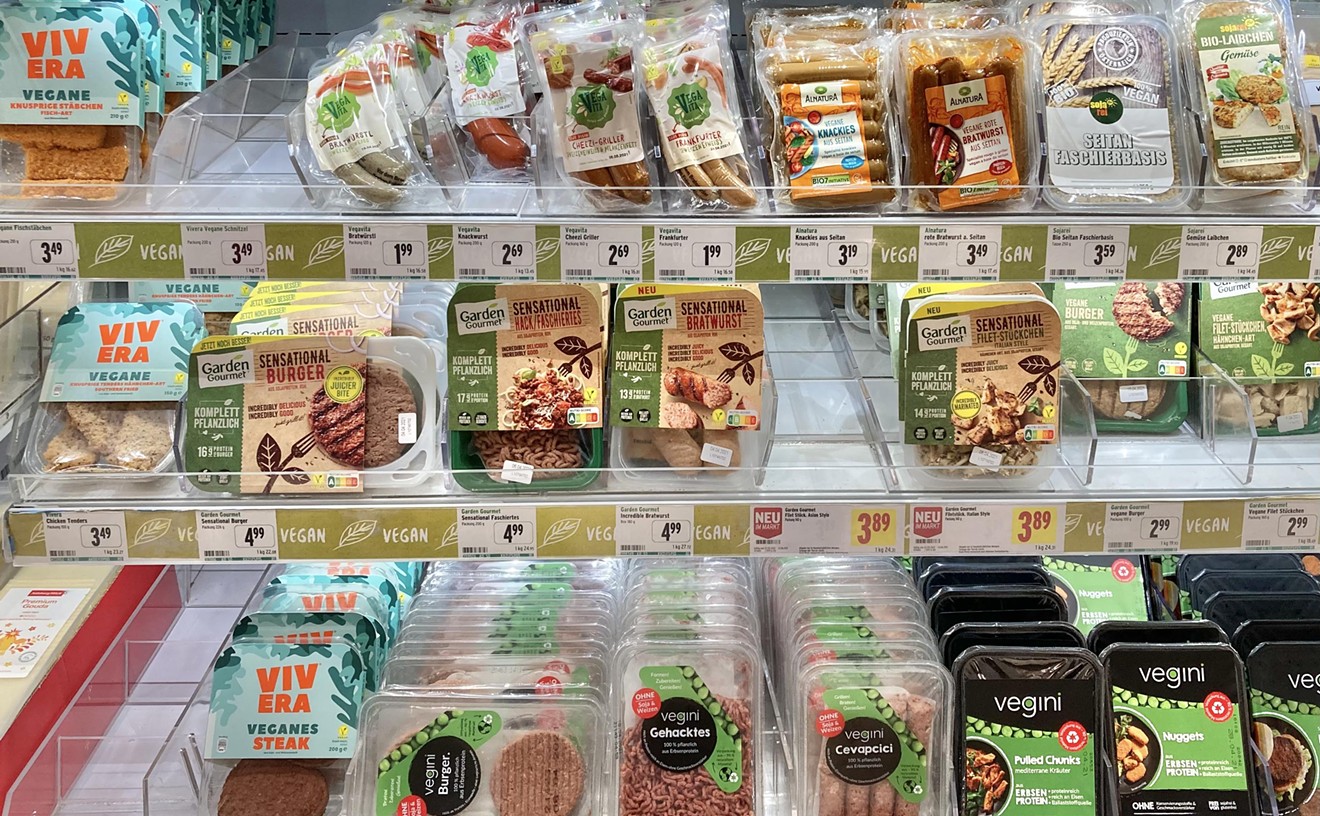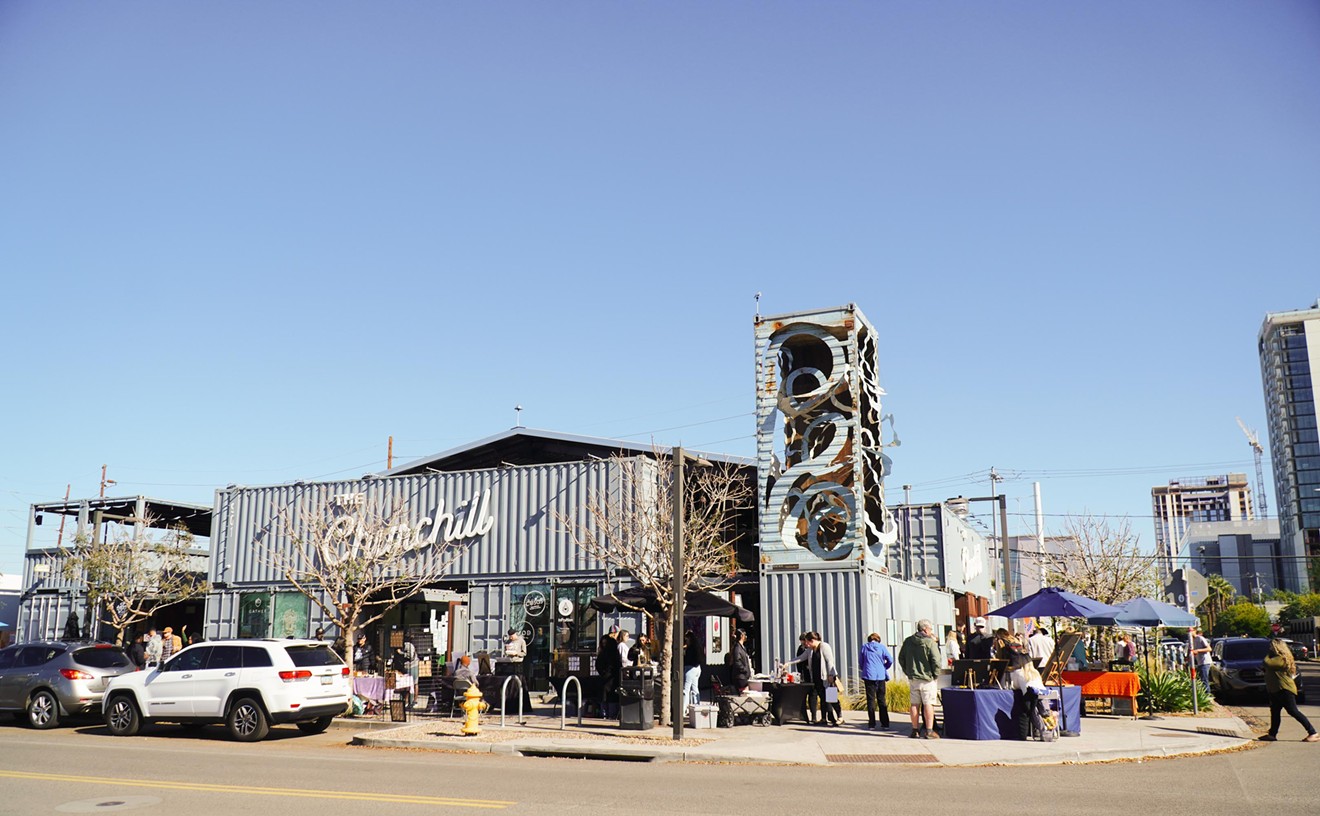King's Lounge, 434 North Central, 495-1597
Phoenix, now outfitted with its own high-gloss, low-caliber pro baseball team that plays in its own posh, government-subsidized housing, seems to be a city blinded by progress and development. In our sketchy urban wonder, culture is something that takes shape only when enough cash is thrown around to buy it and hang it on a wall, rather than when its people find something through which they can define themselves. Commerce takes precedence over culture; and so, mass wholesale demolition often destroys our most obvious pieces of heritage before their unique importance in our culture, landscape and shared history is distinguished.
But not all is lost. Something remains of our ephemeral cultural past. Lingering in a reductivist, second-class, low-life status are vague reminders of post-WW I and WW II optimism: Forgotten motels and hotels, bars, restaurants, even brothels stubbornly survive on dispossessed strips, or among sterile commercial architecture and primary-colored stucco boxes on busy city streets.
King's Lounge is such a place; it has overcome the odds, hanging on downtown while Phoenix spews itself east, west, north and south, sprawling grid after grid, miles from the city's core, while antidrinking political correctness kills the corner bar as a place for social gathering and casual conversation.
Sandwiched between the ornate Jungle adult cabaret and an abandoned art-deco facade, King's is easy to spot. The sucker-punch of its vintage neon beacon is 100 percent cocktail-glass glory from the golden age of sign-making, when neon signs became advertising art and sold an image-over-content message of hopeful anticipation. One can't pass it up--just on the strength of the offer.
Inside, the nicotine-stained scene has all the beauty of a vintage dive bar minus any trendy, train-jumping "Cocktail Nation" pretenses. At King's one would never see Sinatra-suited college kids who smoke cigars, listen to swing and wield dad's credit card while ordering from a list of martinis. King's only serves one kind of martini: the right one.
King's Lounge is the real deal: career drunks, sunburned blue-collar beer-swills, occasional slumming white-collar types and colorful downtown regulars. There is a feeling of family here, a sense of community, a sense that dialogue and communication are important among strangers, as well as those who make King's part of their routine. In fact, many of King's regulars reside around the corner in the Westward Ho retirement home, and it is typical for a bartender to put in a phone call of concern when one of them doesn't show for a few days.
One regular, who is customarily escorted home to the Westward by a bartender, is a neighborly black gentleman christened "Killer" because the cane he carries doubles as a weapon to "kill anyone who tries to mug" him. He really couldn't kill anybody; he's just an old geezer with a sense of humor.
Once, when my partner and I were leaving, a heartbreakingly fragile career drunk said while raising a feeble toast of draft beer: "If ya make one, name 'em after me, he he he he he he . . ."
On a recent visit, we met a young guy who was in town scouting locations for a movie and came into King's because "it's the only bar in Phoenix that reminds me of New York." One night we met a 50-something-year-old named Ralph Gordy who sang the hit "Do You Love Me" in 1962 when he sang in the pop group the Contours. He says his uncle started Motown Records. Now he's singing songs for a buck and lives in a nearby flophouse.
It's that kind of place.
Sporadic visits by white suburban yup types for whom King's is nothing more than a stop on a round of bar-diving miss the point: They may think King's fits their milieu of "dive-bar decadence" because it's old, it's inner-city, and it has a high percentage of brown people drinking in it. But King's is more than that. It's a bar frequented by people from all walks of life, and it maintains a refreshingly nonjudgmental atmosphere. DJ audio assaults and big-screen TV aesthetics are shunned here in favor of good, old-fashioned social intercourse. People talk here.
King's Lounge is two high-ceilinged rooms split by Spanish arches. On one side, a bar with vintage accouterments runs a good 40 feet along the east/west length of the place; behind it, a mirror outlined with a string of lights above an illuminated fish tank. (King's folklore has it that the owner was once regularly kissed on the lips by a rather large tilapia fish named Henry who inhabited the aquarium.) Beneath are rows and rows of liquor bottles, some long undisturbed as told by the accumulation of dust on their caps. A handful of tables lines the opposite wall. An alcove is pure rec room, containing two pool tables and fly-away booze ads with images of happy, young, fit Americans drinking the latest lite strain. Ceiling fans spin above, while a CD jukebox offers twang running the Conway Twitty-to-Sheryl Crow gamut, 10 to a buck. Beer flows cheaply at 95 cents a glass and $4.75 for a large pitcher.
A conversation with a matronly bartender named Annie, who declines to give her last name but offers her age as 57, reveals not only a witty storyteller but a first-person insight into a piece of downtown Phoenix bar history. It also tells of a woman unafraid to toss out a drunkard almost twice her size. Annie was born in Globe, Arizona, of Anglo/Native American descent and in 1964 came to Phoenix to work.
"I worked at Ma Bell up here at Fourth Avenue and Adams and caught a bus because buses ran at that time until midnight," Annie begins the story of how she came to tend bar. "I went into a place called Lil's Hideaway, which was near the bus stop, and I had to use the rest room. It was a go-go bar, the first one in downtown Phoenix. It was also rumored to be the first downtown bar to serve black people.
"I was fascinated with the place," continues Annie. "The owner was a man named Carl Slonsky--Papa Bear was his nickname--and he became somewhat famous then. He also owned another bar nearby called The Pla-More, which had a bowling alley. And when I was at Lil's Hideaway waiting for the bus every evening, he could tell I was out of place.
"At that time, I didn't drink, but he got me drinking rum and Cokes. Finally, one day I was in there waiting for the bus, and the blue coats who walked the beat at that time came in wearing plain clothes to have a drink. The bartender working, a fellow named Miro, served them and one of them was underage. So they got him for serving a minor." The police arrested the barman, who called the owner, who recruited Annie to take over the bar on the spot. "I went behind the bar having never seen the back of one in my life," she says, laughing, ". . . and I've been back here ever since."
Lil's Hideaway was torn down to make way for new buildings on First Avenue near Adams. "Lil's Hideaway moved to 15th Street and Van Buren," she continues, "and I worked there about three weeks, but it was all pimps and their ladies, and the pimps kept beating them up."
She left and landed downtown, tending bar at The Tradewinds, which was in the lobby of the Luhrs Hotel. The Tradewinds is said to have gotten the first liquor license in Phoenix after the repeal of Prohibition. "It was totally done in bamboo, tiki," remembers Annie. "The back bar was two huge fish tanks, 250 gallons each--I wasn't there the night somebody took a shot at someone, missed, and hit the fish tank."
Annie is articulate and well-read, and her natural curiosity to see something other than Arizona led her to tour Europe in the early '80s. Afterward, she returned to downtown Phoenix, signed up for unemployment one day, then walked over to King's and learned it needed a bartender. She got the job.
That was 17 years ago.
The current owner of King's Lounge, Tony Lopez, is the son of its original owner, Osvaldo Lopez, who once had been a hardworking copper miner from southern Arizona. Osvaldo parlayed his work ethic into a liquor store and three bars in Phoenix, all now memories, save for King's.
Now Lopez works another full-time job just to keep afloat. King's constantly struggles against the tide of cutting all the city's connections to its former self in favor of the new. Given an opening, the city usually has come down hard on King's. In 1985, after a fire turned its interior to cinders, incinerating its historic stained-wood panels and booths, along with its financial stability, the city iron-fistedly seized an opportunity and required King's to spend additional thousands on a paved parking lot before the bar could reopen. A few years later, the city squelched King's attempt to open a second bar in an annex it was already using in the building Lopez owned next door.
But, so far, King's perseveres and the drinks will be poured.
"For some reason, some people higher up on the city's elected ladder see this kind of authenticity as a blight," Annie reasons. "They try everything to shut us down. A fire couldn't even do that."
Here, here.










